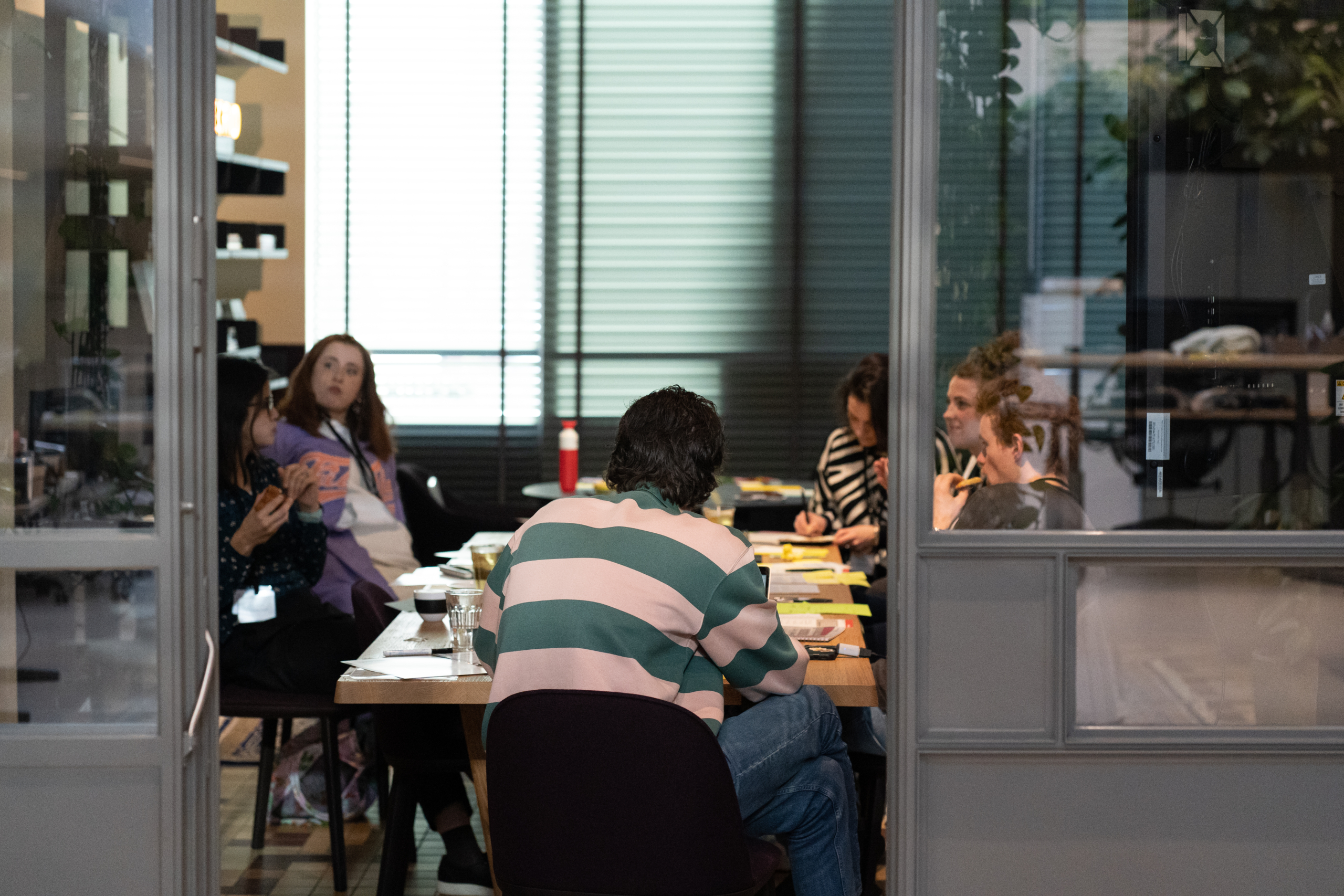Het versterken van
burgerschap, leiderschap, lidmaatschap, eigenaarschap, ondernemerschap
in alle gemeenschappen
Maak je organisatie stap-voor-stap klaar voor snelle veranderingen in een complexe wereld! Wij helpen je te groeien en je impact te vergroten met behoud van cultuur. Dat doen we samen.
Wil je het potentieel in jouw organisatie beschikbaar maken?
Door onze eigen (leer)ervaringen in te zetten helpen wij gemeenschappen en organisaties zelf hun unieke transformatie mogelijk te maken. We pionieren met nieuwe werkwijzen om complexe vraagstukken het hoofd te kunnen bieden.
Eén brok ervaring
We hielpen tientallen organisaties met de stap naar zelforganisatie en hebben samen meer dan 10 jaar ervaring.
Zelf aan de slag
We houden onszelf niet aan het werk. Alles wat we doen is erop gericht om jouw organisatie te versterken.
Holacracy Provider
We zijn in Nederland de enige premium Holacracy provider en aanbieder van de officiële Holacracy Practitioner training.
Brede expertise
Met verschillende achtergronden, zijn we toch één team. Van agile tot zelforganisatie, van boerenbedrijf tot tech-startup.
Levend experiment
We experimenteren zelf volop met de manier waarop we werken, om voor ons en anderen te leren. En, we practice what we preach.
Iteratieve aanpak
We werken met korte iteraties zodat we snel kunnen bijsturen en onze samenwerking constant evalueren.
Ik wil meer weten
Begin je net met ons gedachtengoed en wil je nog even rondkijken? Geen probleem. We hebben een heleboel handige resources waarvan je kunt leren en die je meteen kunt gebruiken.
Ik wil met jullie samenwerken
Heb je een hulpvraag en wil je onze expertise inschakelen? We verkennen de mogelijkheden met je in een eerste gesprek en gaan in op wat er aan de hand is en hoe wij je kunnen helpen, geheel vrijblijvend natuurlijk.
Je bent in goed gezelschap
In 10 jaar hebben we meer dan 150 organisaties hebben begeleid op hun pad naar een cultuur van eigenaarschap, zodat ze hun potentieel optimaal kunnen benutten.






Bouwen aan een cultuur van eigenaarschap?
Ontgrendel een heleboel kennis! We hebben talloze blogs, artikelen, handleidingen en zelfs een boek voor jou! Of je nu je eerste stappen zet of de diepte in wil duiken, hier vind je wat je zoekt.
Meer lezen? Bekijk onze blogs
Ben je benieuwd naar verhalen van andere ondernemers, tips, how-to’s en prikkelende reflecties en stellingen? Lees hier meer over topics die ons bezighouden.
Kristalheldere organisatie: 5 softwaretools voor zelforganisatie
De meeste organisaties die we met Energized ondersteunen willen een paar dingen: een cultuur van eigenaarschap, zelforganisatie op basis van duidelijke spelregels, en een kristalheldere organisatiestructuur waarin de verwachtingen voor iedereen duidelijk zijn. Die heldere organisatiestructuur wil je natuurlijk voor al je medewerkers inzichtelijk en toegankelijk maken.
Why we chose Holacracy at De Warren
De Warren is a housing community in Amsterdam, that moved into its brand new wooden building in February 2023. In the years leading up to finally moving in, one of the (many) projects we worked on, was: figuring out how to live together: how do we manage the shared spaces? How do we organize cleaning? How do we choose new inhabitants? And above all: how do we make decisions?
Voordelen en uitdagingen van een modulaire Holacracy implementatie
Het verschil tussen zelforganisatie en zelfsturing
De term ‘zelfsturende teams’ hoor je steeds vaker. Maar ook andere termen duiken af en toe op. Wat is het verschil tussen zelforganisatie en zelfsturing in organisatie context? En waarom zou je dat eigenlijk willenWe leggen hieronder kort uit wat zelfsturing en zelforganisatie binnen organisaties volgens ons betekent en wat de verschillen zijn.
Belonen, de Hike One manier
Belonen, de Hike One manierBij digital agency Hike One hebben ze een eigen uniek beloningsmodel ontwikkeld. Het bedrag dat nu op het salarisstrookje staat, is gerelateerd aan de toegevoegde waarde, die de medewerker heeft gehad voor het bedrijf en voor klanten van Hike One in plaats van aan een klassieke functieschaal.

Nieuwsgierig naar groei?
Wij willen graag kennis met je maken. Vul onderstaand formulier in of bel gewoon naar 085-13017195.




